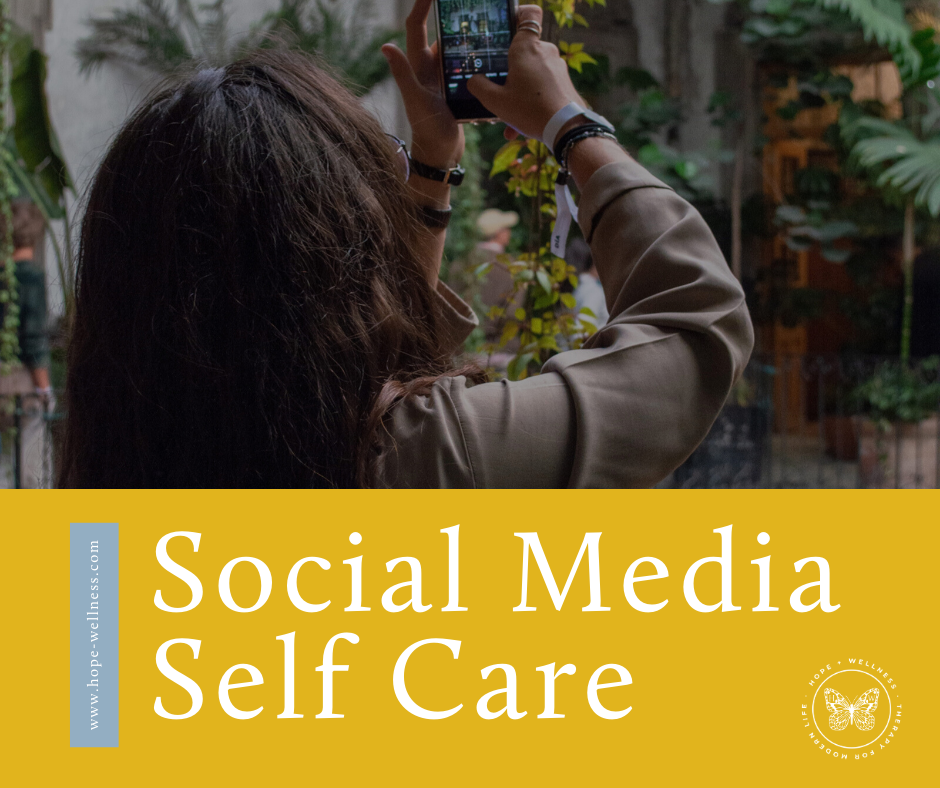
Hope +Wellness Blog
little snippets of advice for everyday challenges many people share

How Grounding Techniques Can Help With Anxiety
If you’ve dealt with anxiety before, you know that it can be hard to get out of the cycle of panic on your own. When you’re in the midst of an anxious spiral, it can be almost impossible to snap yourself out of it, especially if you haven’t practiced. Anxiety is a complicated condition, but luckily there are ways to prepare yourself for your next bout of anxiety. One of the most popular ways to help manage panic or distressing thoughts is by grounding yourself.

Is Perfectionism Holding You Back?
“Perfectionism is a trait that makes life an endless report card on accomplishments or looks.” That is how Psychology Today makes short work of defining perfectionism. While simple, this succinct definition of perfection hits the nail on the head.
While achieving perfection sounds positive, the trait of perfectionism is actually more toxic than beneficial to our overall health and wellness–because, as most of us know, perfection isn’t actually possible to achieve. Instead, perfectionism is a trait that acts as a harsh, critical voice inside our heads, making us too afraid of failure or criticism to try new things, expand our world, or let ourselves be vulnerable in any way.

How to stop social media from making you feel bad about yourself
When you think of self care practices, do you ever consider your social media?
While social media is great for so many things (keeping up to date with friends who live far away, finding new music or movies or other cultural events, staying on top of local events, just to name a few) it’s not something we should use mindlessly.

What parents of anxious children should know about anxiety
Feeling anxious is a completely normal part of life. When big events or school projects or new social experiences are coming up, it’s natural for your child to feel some degree of anxiety. However, just as in adult, anxiety in children can also become overwhelming. When this anxiety tips over from being a manageable emotion to being a major obstacle in their everyday life, that’s when your child may be struggling to manage an anxiety disorder.

Live with Happiness by Identifying Your Values
Sometimes in life, we feel lost and confused, unsure of which direction to go in our lives. Should we go to this school or that school? Should we stay with this person or leave? Well-meaning friends and family may give us advice and feedback, but we end up feeling even more lost among all their opinions and perspectives. Many people also find it difficult to make their own decisions, as they want so much for others to be happy, that they’ve learned to set aside their own desires for that of others.

Accepting Yourself Unconditionally, As You Are
So many of us are able to love and to feel compassion for others, but what about ourselves? So often, we feel inadequate — we are all too familiar with our weaknesses and judge ourselves for our bodies, mistakes we’ve made, things we’ve said and done, feeling guilty and undisciplined for all the tasks we haven’t done, our level of productivity — the list goes on.

16 Calming Quotes to Relieve Stress and Anxiety
We all experience stress and anxiety in our lives, but when it begins to interfere with the quality of our lives, it’s time to let go. We worry about our relationships. We get anxious about work and what colleagues think of us.

24 Resources for Children and Teens with Anxiety and Their Families
We all experience anxiety, but sometimes it can become overwhelming and begin to interfere with your child’s daily functioning and quality of life. For example. some anxiety is healthy and natural when we are taking tests as it can help enhance performance. However, when anxiety becomes overwhelming, it can disrupt performance for children. Sometimes when anxious, children may begin to avoid certain triggering situations and events, such as peers, teachers, or school itself. The avoidance then serves to maintain the anxiety and to worsen it over time. As a parent, how can you help your child break free of anxiety, out of their mind and into their life?

3 Tips for Parenting a Child with Chronic Pain
It can be challenging to parent a child with chronic pain. Not only is it difficult to see your child in pain, but parents often feel helpless, stuck, and unsure of what to do to help ease the pain and mitigate its impacts on their child’s life and daily functioning.

28 Anxiety Resources for Adults
We all experience anxiety, but sometimes it can become overwhelming and begin to interfere with your daily functioning and quality of life. It can be difficult to find resources to help. Here, we list websites, books, organizations, apps, and videos for valuable information and support.
Hope+Wellness is a mental health practice specializing in the treatment of depression, mood, stress, and anxiety in kids, teens, and adults. This is a blog about living well and finding meaning and purpose in the face of difficult challenges. This is a blog about finding hope.
Archive
- ACT
- ADHD
- Acceptance
- Anxiety
- Authenticity
- Belonging
- Bipolar
- CBT
- Calming
- Change
- Chronic Illness
- Chronic Pain
- Communication
- Community
- Coping Skills
- DBT
- Dating
- Depression
- EMDR
- Emotions
- Entrepreneurs
- Friendship
- Gratitude
- Grief
- Health Psychology
- Hope
- Inspiration
- Intimacy
- Intuition
- Joy
- Letting Go
- Love
- Manic Depression
- Mindfulness
- Miscarriage
- OCD
- Parenting
- Personal Growth
- Positive Vibes
- Quotes
- Relationships
- Resources
- Self-Compassion
- Self-Reflection
- Services
- Sleep
- Spirituality
- Stress Management
- Stress Relief
- Suffering